Dr. Dang Duc Mai - Chairman of Hanoi Association of Information Technology and Telecommunications, shared with reporters of the People's Army Electronic Newspaper about this issue.
PV: From an expert's perspective, what are the advantages and difficulties facing Hanoi's digital transformation, sir?
Dr. Dang Duc Mai: As the capital of the whole country, Hanoi has a great advantage in receiving close attention and direction from the Central Government and the Government. Specifically, the Politburo issued Resolution No. 15-NQ/TW dated May 15, 2022 on the direction and tasks of developing Hanoi Capital to 2030, with a vision to 2045. Hanoi also has a solid foundation, full awareness of leaders at all levels and high determination of the entire City in implementing digital transformation. Resolution No. 18 clearly demonstrates the vision and attention and direction of the highest leadership agency of the Capital in digital transformation work.
Hanoi is also home to many large universities and research institutes, where the "elite" in the field of science - technology - information technology gathers, this is an extremely favorable condition for Hanoi to carry out digital transformation. Hanoi is also the "cradle" of innovation, FINTECH and digital technology ecosystems with many centers, research institutes, and innovation incubators with high-quality human resources. Thanks to the concentration of many high-tech enterprises, Hanoi is the leader in the country in terms of potential for designing and deploying digital technologies. With telecommunications infrastructure, internet and mobile networks covering the entire city, businesses and people can easily access digital services and applications.
Besides the above advantages, Hanoi also faces some difficulties in implementing digital transformation, such as: The problem of capital investment in digital technology platform systems; large population and large area make the implementation of platform systems more difficult than other localities...
PV: So what should Hanoi do to promote advantages, overcome difficulties as you just mentioned, realize the goals as well as the 3 pillars of digital transformation as set out in the Resolution of the City Party Committee?
Dr. Dang Duc Mai: To achieve the 2025 goals, there is not much time left, Hanoi needs to focus resources to accelerate the proposed key tasks and solutions. In addition, it is necessary to establish a strict monitoring mechanism to ensure the implementation of tasks on schedule. In particular, 2023 is the basic year to start up, launch projects and tasks that have not been started, ensuring that the projects run and complete successfully by 2025. After that, the tasks and projects will continue to be completed and upgraded to meet the goals for the period up to 2030.
The development of a plan to balance and allocate funding for Hanoi's digital transformation needs to be researched, developed, and approved according to each specific roadmap. In particular, research on plans to harmonize and combine funding from the Central Government (according to digital transformation projects of ministries and branches of which the Capital is the beneficiary) with funding from the Capital's budget; pilot implementation of information technology projects/tasks, digital transformation in the form of PPP.
For the task of building digital infrastructure, there needs to be a Hanoi CLOUD network (private cloud for Hanoi) to operate all public services of the City and other applications belonging to the pillars of digital economy and digital society. All applications serving people, businesses and the government need to meet the criteria of access and exploitation, use anytime, anywhere, that is, they must run on the technical platform of Hanoi CLOUD. A Hanoi METROPOLIS network infrastructure (private communication network of Hanoi) is very important. This network has modern technology with wide bandwidth, broadband internet connection - that is, creating a network of "digital highways" connecting all districts, wards/communes and all agencies of the capital.
To build digital information and data for all three pillars, avoiding the construction of separate data systems that lead to difficulties in connection and integration, it is necessary to have a master plan for Hanoi DIGITAL DATA BLUEPRINT digital data, technically complying with the latest technologies in current data science. This is the Master Plan for the data system and digital data, open data of the Capital, which is the foundation for implementing data interconnection, interconnection of business processes, interconnection of administrative procedures at all levels of government of the Capital as well as effectively exploiting data stored from national databases, especially the national database on population. Researching, building a master plan and implementing according to the plan of Hanoi DIGITAL DATA digital data system is an important foundation to further accelerate the process of digital transformation of the Capital.
In particular, the current digital environment is very complex, Hanoi's digital infrastructure and digital data need to be firmly protected by an overarching project, the Hanoi CyberSecurity project.
For the task of building a digital economy and digital society, create conditions to encourage businesses to operate entirely on digital platforms, creating successful digital products. Implement free training programs for business owners on the digital transformation process; recommend successful digital transformation models for small and medium enterprises to learn and apply in their businesses. Use the criterion of the number of Hanoi businesses that have successfully implemented digital transformation in their businesses as a measure of the capital's digital economic development indicators. Organize volunteer working groups (students, students, youth unions) to go to wards and communes to guide and train digital skills for people, care for the elderly, focus on guiding the use of essential public services provided by the Government and Hanoi.
In addition, it is necessary to focus on training, building and attracting a team of high-quality IT personnel to work in units and agencies specializing in information technology and digital transformation in Hanoi. Research and select a number of administrative units (from ward/commune level to district/county level) to focus resources on building model smart cities. These model smart cities will act as a "lever" to promote the development of digital economy and digital society in the area, while promoting the digital transformation process of "satellite cities". Encourage and attract large technology enterprises and other investors to participate in the City's major projects. These companies can provide smart technology solutions, including artificial intelligence and data analysis to help solve practical problems of the city.
PV: Digital transformation is changing the way of doing things and operating, in which the role of the head of the agency or unit is extremely important. Can you share your views on this issue?
Dr. Dang Duc Mai: That's right! I would like to quote a part of the speech of Minister of Information and Communications Nguyen Manh Hung about the difference between information technology and digital transformation: "Shifting the focus from the director of information technology to the leader, ... digital transformation is about changing the way of doing things, changing the way the organization operates, so the leader plays a decisive role. Destroying the old and introducing new ways of doing things can only be done by one person, that is the leader. If the leader does not want to change the way of doing things, there will be no digital transformation. If the leader wants to change the way of doing things but delegates the authority to his deputy to do digital transformation, there will also be no digital transformation."
The determination of the head of the Capital is very high, clearly shown in Resolution No. 18 and the Program on digital transformation of the City People's Committee. These are very important documents to implement digital transformation, building a civilized - cultured - modern Capital in the spirit of Resolution No. 15-NQ/TW dated May 15, 2022 of the Politburo on the direction and tasks of developing the Capital Hanoi to 2030, with a vision to 2045. Thanks to that, Hanoi will certainly complete the set goals.
LINH SON (performed )
Source



![[Photo] President Luong Cuong receives Speaker of the New Zealand Parliament Gerry Brownlee](https://vphoto.vietnam.vn/thumb/1200x675/vietnam/resource/IMAGE/2025/8/29/7accfe1f5d85485da58b0a61d35dc10f)




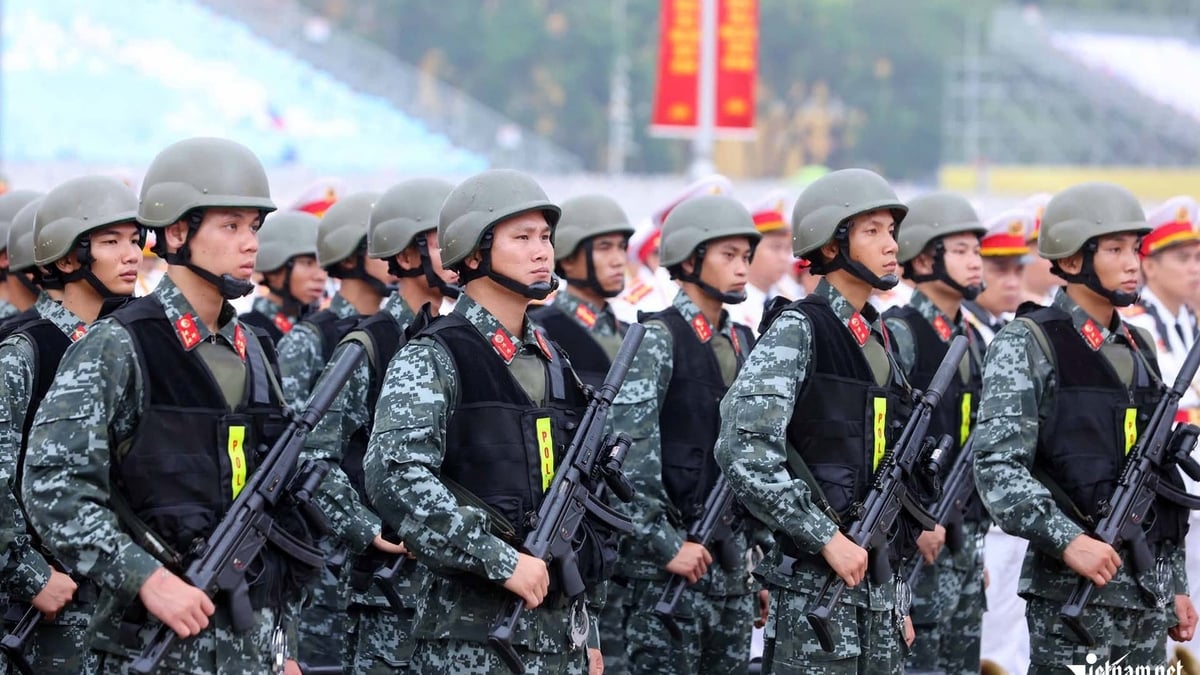


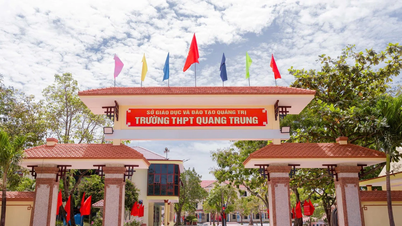


![[Video] "Building a STEAM LAB classroom to meet the 2018 general education program"](https://vphoto.vietnam.vn/thumb/402x226/vietnam/resource/IMAGE/2025/8/29/6a94c4cc91f94ad9b58f5d500860d6fa)


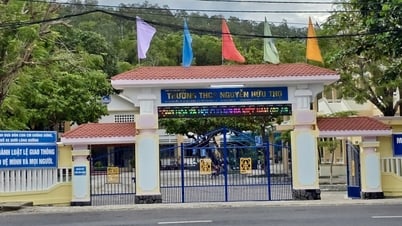























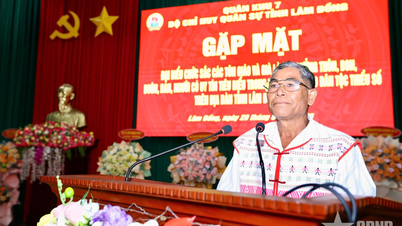
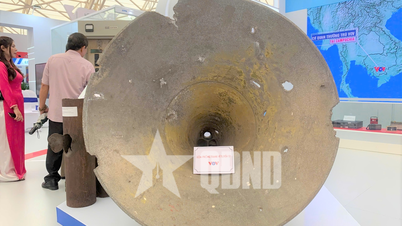

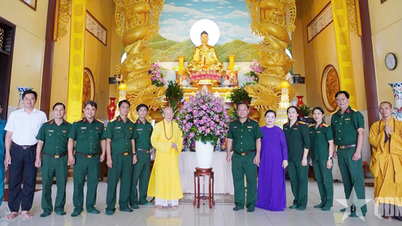
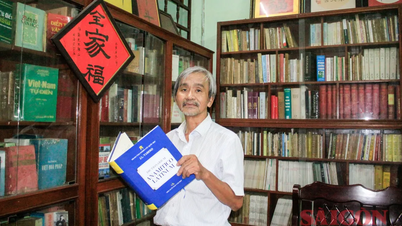

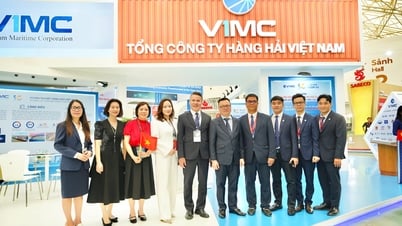



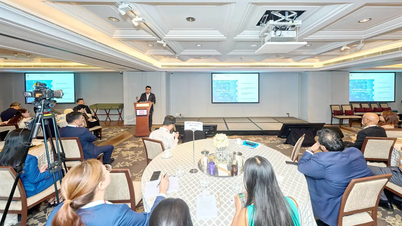
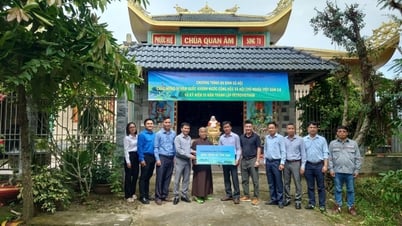



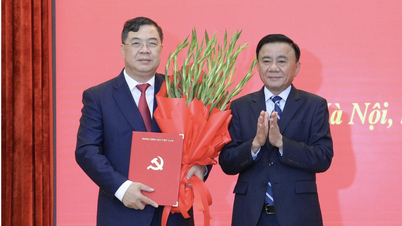



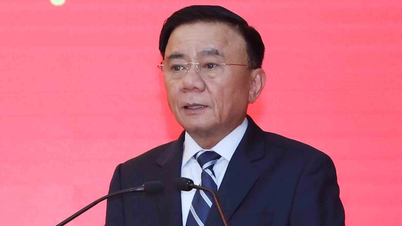

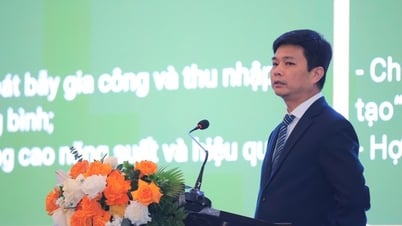


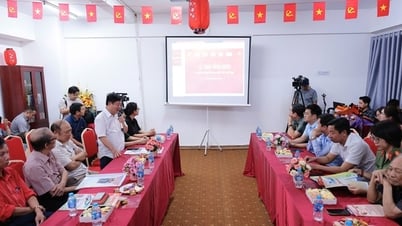
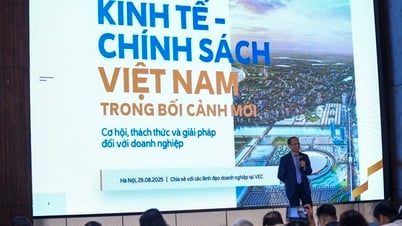
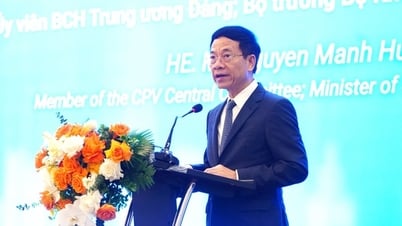























Comment (0)